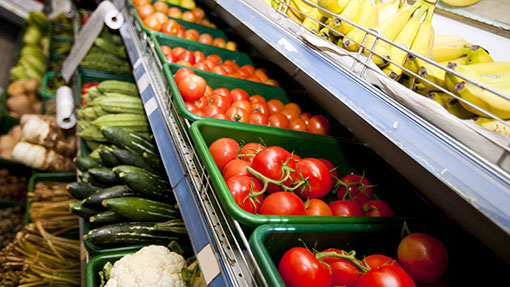Four in five suppliers faced problems with retailers

Eighty per cent of suppliers say they have faced difficulties in dealing with retailers but only 23% have raised an issue due to fear of reprisals, a YouGov poll has found.
Findings released at the Groceries Code adjudicator’s first annual conference on 23 June found that 58% of suppliers cited fear of retribution as the biggest barrier to reporting an issue. And more than 40% said they did not think the adjudicator would do anything.
The adjudicator, Christine Tacon, underlined the sense of fear.
“In many, many cases, people are asking me what I am going to do to protect their anonymity,” Mrs Tacon said.
Many suppliers surveyed claimed they had experienced multiple and varied issues dealing with retailers.
Almost half (46%) said incorrect deductions had been made from invoices while 45% complained of incorrect charges by retailers who had gained access to their accounts.
Changes in supply agreements was a complaint from 40% of those experiencing issues, while 37% reported unjustified charges for dealing with consumer complaints.
Written supply agreements between suppliers and retailers were still in short supply. Suppliers of Aldi and Tesco were most likely to have written agreements with 44% for each saying they had such an agreement, whereas only 33% of suppliers of Morrisons had written supplier agreements – the least of all retailers covered by the code.
Presenting her annual report, Mrs Tacon, outlined progress on “forensic auditing” – the retailer practice of trawling back through emails and accounts going back by up to six years to find money still owed by suppliers.
See also: Retailer slammed for grocery code breach
Tesco, Asda, Morrisons, Co-op, Lidl, Aldi and Iceland have agreed to limit the practice to two years, while Sainsbury’s and Waitrose were the only supermarkets covered by the Groceries Code not to sign up.
Some businesses had been brought close to collapse by forensic auditing, said Mrs Tacon, with several suppliers being asked to pay six or seven-figure sums of money.
Other common complaints brought to the GCA included mismatched retailer and supplier receipts on deliveries, with retailers issuing goods receipts for less than what the supplier said they had delivered.
Inaccuracies in retailer forecasting was also a big issue, with suppliers penalised for not meeting sudden changes to orders, or not being compensated accordingly.
Retailers had also reportedly asked for lump sums in the run-up to financial forecasting, including instances of “joint business plan” contracts where suppliers were bound to support the retailer’s profit margins. An unreasonable charge for packaging and marketing was also an issue.
“I think there are lots of practices which have become ingrained and which may or may not be in breach of the code,” said Mrs Tacon.
Respondents to the YouGov poll said there was still a disparity between the retailers’ management which showed commitment to the code, and the reality being borne out by buying teams. Only 20% said that relations had improved, while 63% thought they were about the same and 17% said they had worsened.
To successfully change relations, a cultural shift among retailers with greater collaboration was cited by 75% of direct suppliers and 63% of trade associations as the way forward. The ability to raise issues about retailer practice was also highly important for 67% of people.
Greater awareness of the Groceries Supply Code of Practice (GSCOP) and the GCA was also needed – 84% of all respondents were aware to a certain extent of GSCOP, and 72% of the role of the GCA, but 29% of direct suppliers were unaware of the code, while only 14% were “very familiar” and 38% “quite familiar”. Only 10% of indirect suppliers were very familiar.
“Our sense is that we are making a very good start but it is early days and lots of suppliers don’t understand the code,” said Andrew McCarthy, chairman of supplier group trade body, the British Brands Groups.
Mr McCarthy called on trade associations to continue to “scrutinise” retailer practices and to monitor changes in the marketplace, like the rise of the discounters, and any new practices creeping in, which might warrant the groceries code being updated.
The poll asked 574 people about their views on the GCA: 381 were direct suppliers to retailers, 46 were trade associations and 147 were indirect suppliers.
